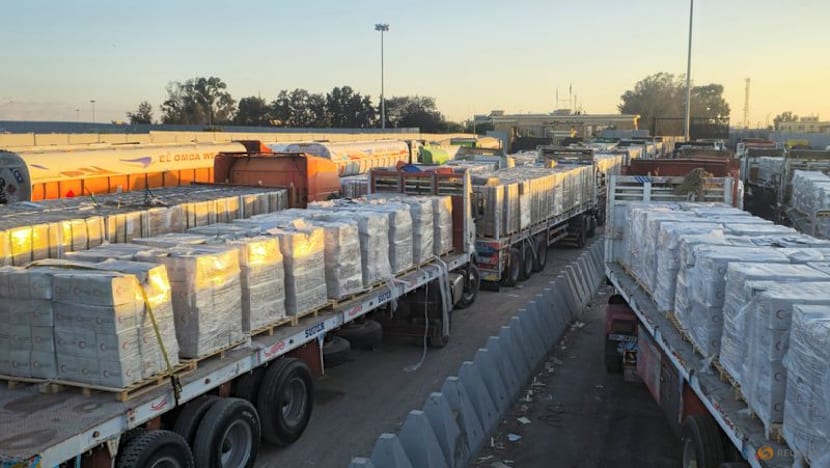Politics
Netanyahu Confirms Rafah Border Crossing Remains Closed

Israeli Prime Minister Benjamin Netanyahu announced on October 18, 2024, that the Rafah border crossing between Gaza and Egypt will remain closed until further notice. The decision ties the reopening of the crossing to the return of the remaining bodies of Israeli hostages held by Hamas. This statement came shortly after the Palestinian embassy in Cairo indicated that Rafah would reopen on Monday for entry into Gaza.
Hamas has committed to returning two more bodies at 22:00 local time (19:00 GMT), raising the total returned to 12 out of 28 Israeli hostages’ remains as part of a ceasefire and hostage agreement brokered by the United States. Despite these efforts, Israel contends that Hamas has been too slow in its actions, claiming that the delays are being used as leverage in negotiations.
The ongoing dispute over the return of bodies underscores the precarious nature of the ceasefire, which is part of a broader peace initiative led by former US President Donald Trump. Under the terms of the agreement, Hamas released 20 surviving Israeli hostages it had held for two years in exchange for nearly 2,000 Palestinian prisoners and detainees in Israeli custody. In return for each Israeli body received, Israel has reportedly returned 15 bodies of Palestinian militants.
Humanitarian Crisis Persists
The Rafah crossing has been largely closed since May 2024, preventing thousands of Gazans from leaving the war-torn enclave. The ceasefire deal aimed to enhance humanitarian aid to the area. The United Nations World Food Programme indicates that an average of 560 metric tonnes of food have entered Gaza daily since the truce took effect. Despite this, the amount remains significantly below the requirements needed to support the population.
Israel had previously halted all supplies for 11 weeks in March before gradually reopening aid routes in July. This ongoing humanitarian crisis continues to affect the daily lives of those in Gaza, exacerbating the already dire situation.
Challenges to the Peace Process
Significant obstacles remain in the path of Trump’s peace plan, including the disarmament of Hamas, future governance of Gaza, and the establishment of an international stabilization force. As international mediators work to maintain the ceasefire, Netanyahu’s statements reflect the deep mistrust that persists between the two sides.
The complex dynamics of the situation highlight the challenges faced in achieving lasting peace, as both humanitarian needs and political negotiations intersect in a fragile context.
-

 Business5 months ago
Business5 months agoKenvue Dismisses CEO Thibaut Mongon as Strategic Review Advances
-

 Lifestyle4 months ago
Lifestyle4 months agoHumanism Camp Engages 250 Youths in Summer Fest 2025
-

 Sports4 months ago
Sports4 months agoDe Minaur Triumphs at Washington Open After Thrilling Comeback
-

 Sports5 months ago
Sports5 months agoTupou and Daugunu Join First Nations Squad for Lions Clash
-

 Top Stories5 months ago
Top Stories5 months agoColombian Senator Miguel Uribe Shows Signs of Recovery After Attack
-

 World5 months ago
World5 months agoASEAN Gears Up for Historic Joint Meeting of Foreign and Economic Ministers
-

 Health4 months ago
Health4 months agoNew Study Challenges Assumptions About Aging and Inflammation
-

 Business5 months ago
Business5 months agoOil Prices Surge Following New EU Sanctions on Russia
-

 Entertainment4 months ago
Entertainment4 months agoDetaşe-Sabah Violin Ensemble Captivates at Gabala Music Festival
-

 Entertainment4 months ago
Entertainment4 months agoBaku Metro Extends Hours for Justin Timberlake Concert
-

 Top Stories5 months ago
Top Stories5 months agoRethinking Singapore’s F&B Regulations Amid Business Closures
-

 Business5 months ago
Business5 months agoU.S. House Approves Stablecoin Bill, Sends to Trump for Signature









